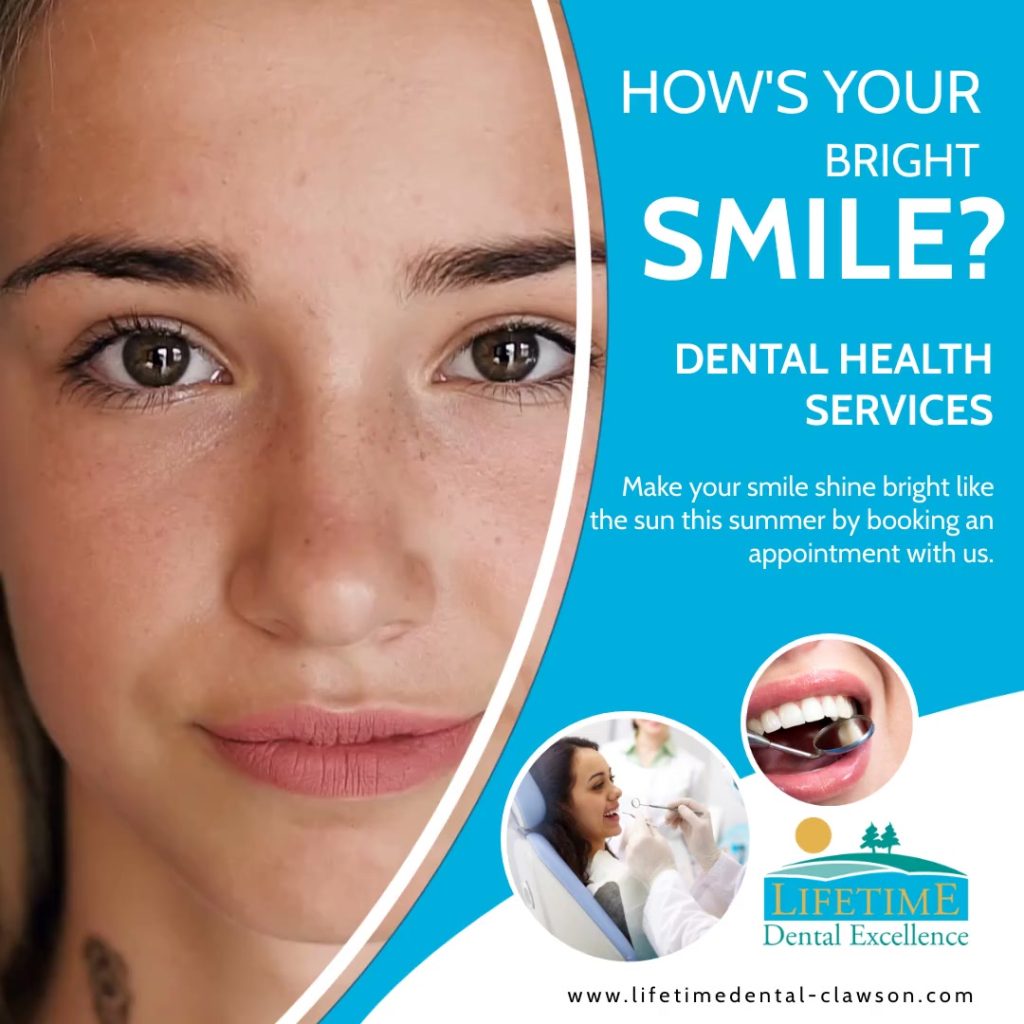
Get your teeth cleaned and make your smile shine bright this summer! Book a dental appointment by calling (248) 965-8166 or visit our contact page to book an appointment with a hygienist today.
Mon – Thu: 7:00am – 7:00pm, Fri: 7:00am – 12:00pm, Sat – Sun: Closed
17 S Main St, Clawson, MI 48017

Get your teeth cleaned and make your smile shine bright this summer! Book a dental appointment by calling (248) 965-8166 or visit our contact page to book an appointment with a hygienist today.
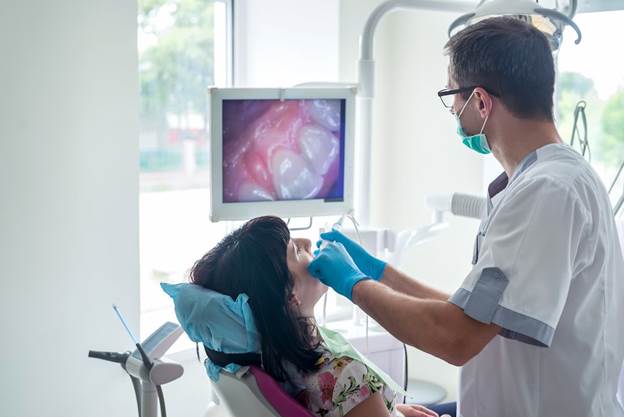
Digital dentistry is the use of digital technology and computers in dental care. It uses computer-aided design (CAD) and computer-aided manufacturing (CAM) software to produce dental restorations such as crowns, veneers, bridges, and implants. This practice has drastically improved the speed and accuracy of dental procedures. This includes both implants and restorations. With digital X-rays and 3D scanners, dentists can get a more accurate picture of the patient’s mouth and teeth. This allows them to quickly and accurately identify problems and perform treatment quickly and effectively.
Digital dentistry also simplifies the process of creating custom prosthetics and implants. Dental technicians can design and create these in a matter of hours, dramatically reducing the time required to get a patient’s dental reconstruction completed. It is transforming the field of oral healthcare. It is making it easier and faster for dentists to diagnose and treat various dental problems. It is also making the entire process of getting dental restorations and implants quick and easy – for both patient and practitioner.
How Does Digital Dentistry Benefit Oral Health?
Since digital dentistry provides accurate imaging technology, it is easier for dentists to identify and diagnose problems. This means they can begin treatment and work on a plan faster. Digital dentistry can also help dentists customize plans for each patient according to his/her unique needs.
Digital dentistry also offers many more treatment options. 3D imaging and printing technology allow dentists to create restorations and implants faster, more accurately, and with an eye toward the preservation of existing healthy tooth structures. Digital dentistry also opens the possibilities of more accurate treatment planning and greater restoration customization. Dentists can more precisely plan an effective treatment and create more detailed restorations, such as a dental implant. This has allowed restorations to be more aesthetically pleasing and comfortable than ever before.
Finally, digital dentistry is cost-effective. The use of digital technology is significantly reducing the cost of dentistry, making it more accessible for people who may not have otherwise been able to afford dental treatment. This is one of the most important benefits that digital dentistry has had for oral healthcare.
Our Technology
Our team is always focused on keeping up with the trends in dentistry. Our technology will ensure we get accurate solutions to a plethora of oral health issues. Some of our technology includes:
Visit our technologies page to learn more about how we can meet your needs with our modern dental technology.
Book an Appointment
We have helped many of our valued patients take control of their oral health. Our digital dentistry technology is effective and high quality. Visit our contact page to book an appointment today.
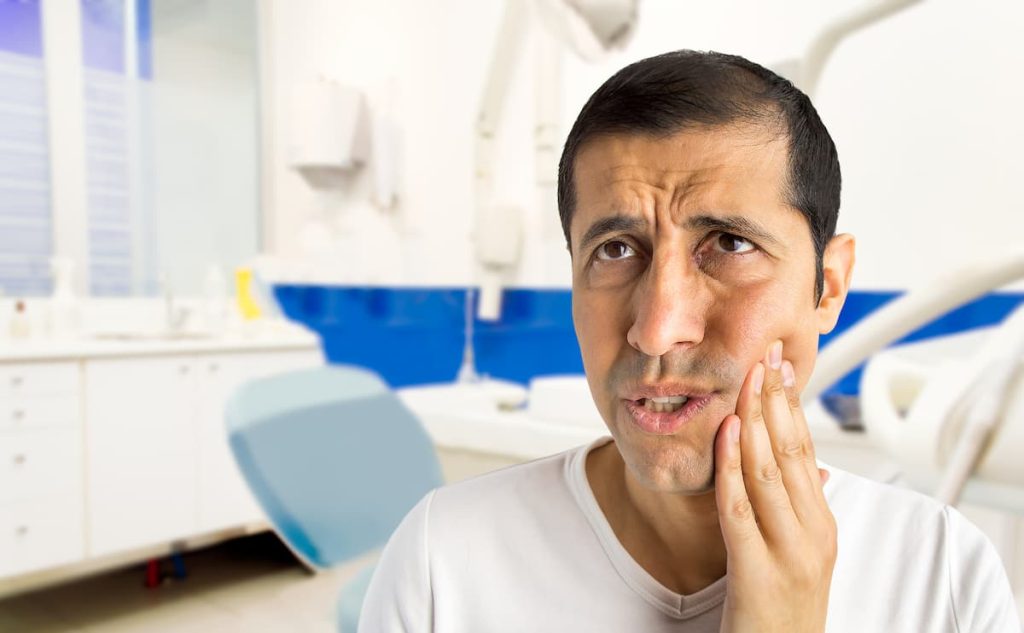
Stress is a well-known inhibitor of good physical and mental health. When it comes to dental health, stress can have a surprisingly negative impact. This is because stress can lead to unhealthy behaviors that can harm your teeth, gums, and overall oral health.
Some of the ways in which stress can impact your dental health include:
– Clenching or grinding your teeth
– Eating sugary or acidic foods
– Drinking alcohol
– Smoking
All of these behaviors can lead to damage of the teeth and gums. In some cases, stress can also lead to gum disease. While it’s not always possible to eliminate stress from your life, there are some things you can do to manage it in a way that doesn’t hurt your dental health. Keep reading to learn more about the truth about how stress affects your dental health!
The Connection Between Stress and Dental Health
When it comes to dental health, it is important to understand that stress is a major factor. In fact, stress can lead to a wide variety of harmful behaviors that can have a negative impact on your oral health. For example, people with high levels of stress are more likely to grind and clench their teeth, eat sugary and acidic foods, drink alcohol, and smoke.
All of these behaviors can put your teeth and gums at risk. Grinding and clenching can lead to tooth damage or even loss; sugary and acidic foods can cause cavities and weaken the enamel of your teeth; drinking alcohol can dry out your mouth, leading to bad breath, gum disease, and tooth decay; and smoking can reduce the flow of saliva and lead to gum disease.
It is important to understand that managing stress is essential when it comes to protecting your dental health. Stress can lead to unhealthy behaviors that can have a long-term impact on your oral health. Learning to manage stress in a healthy way and avoiding activities that lead to dental harm is the key to protecting your teeth and gums.
The Different Ways That Stress Can Impact Your Dental Health
While it is well-established that stress will increase the chances of unhealthy behaviors, such as grinding and clenching teeth, eating sugary and acidic foods, drinking alcohol, and smoking cigarettes, there are other subtle ways that it can impact your dental health.
Stress can lead to changes in the immune system that may result in a decrease in antibody levels and a strengthened inflammatory response. This can make people more susceptible to gum disease, periodontitis, and cavities. Even just being under a lot of stress can affect the structure of the teeth, leading to enamel erosion and other dental issues.
Stress can also weaken or disrupt the oral microbiome, leading to an increase in the bacteria associated with periodontal disease and inflammation. This, in turn, can increase the risk of other conditions, such as gingivitis.
Finally, stress can lead to dry mouth, which can make people more prone to tooth decay and gum disease. To combat this, it is important for people under a lot of stress to stay properly hydrated and to maintain good oral hygiene, such as brushing two or three times a day.
The Impact of Long-Term Stress on Dental Health
Long-term stress can cause a variety of dental problems, such as crooked teeth, severe tooth decay, and cavities. It can also lead to serious complications such as periodontal disease and jaw problems, which can cause chronic pain and negatively affect chewing and speaking.
It is very important to minimize stress levels to maintain good overall health. People who are under a lot of stress should visit the dentist regularly and practice good oral hygiene to reduce the risk of dental issues.
Receiving regular professional dental cleanings can help reduce the spread of bacteria and plaque that can build up on teeth. It is also essential to ensure that any existing oral hygiene issues are addressed appropriately by us.
Oral hygiene habits such as brushing, flossing, and rinsing should be incorporated into a daily routine. Looking after your dental health is essential for both good physical and mental health.
Making sure to get plenty of rest and practice healthy coping mechanisms for when stress does arise can help protect dental health. Taking up relaxation techniques such as yoga or meditation can also help reduce stress related to dental health.
Tips for Managing Stress to Protect Your Dental Health
There are some effective tips that can help you manage stress and protect your dental health.
As You Cope…
Stress can have a detrimental effect on your dental health. It can worsen symptoms of existing dental conditions and lead to the development of new conditions. The best way to protect your teeth and gums is to manage your stress levels. By following the tips mentioned above, you can help reduce the effects of stress on your dental health.
As a final step, make sure to visit your dentist at least once a year for regular checkups and cleanings. We will be able to inspect your teeth and gums for any signs of damage or decay, diagnose any dental conditions, and recommend treatment options.
By monitoring your stress levels and visiting us regularly, you can help keep your dental health in top shape. VIsit our contact page to book an appointment today.

Tooth sensitivity is a common problem that affects millions of people worldwide. It can be caused by a number of factors, including gum disease, teeth grinding, and teeth whitening. Sensitive teeth can make eating and drinking hot or cold beverages very painful.
There are a number of ways to prevent and treat tooth sensitivity. These include using a special toothpaste, avoiding acidic foods and drinks, and getting regular dental checkups.
If you are suffering from tooth sensitivity, it is important to consult with us to find the best course of treatment. Keep reading to learn more about tooth sensitivity, its causes, prevention, and treatment!
Causes of Tooth Sensitivity
1. Gum Disease: Gum disease causes the gums to recede, exposing the sensitive roots of the teeth.
2. Teeth Grinding: Teeth grinding, or bruxism, can wear down the enamel on your teeth, exposing the sensitive dentin layer.
3. Tooth Decay: Tooth decay can lead to the exposure of the sensitive part of the tooth, causing pain and sensitivity.
4. Acidic Foods and Drinks: Consuming highly acidic foods and drinks, such as citrus fruits and soda, can erode the enamel on your teeth, leading to sensitivity.
5. Teeth Whitening: Overuse of teeth whitening products can cause sensitivity by removing the protective layer of enamel on your teeth.
Prevention of Tooth Sensitivity
1. Use a Soft-Bristled Toothbrush: Using a soft-bristled toothbrush helps prevent gum recession and enamel erosion.
2. Avoid Acidic Foods and Drinks: Limit the consumption of highly acidic foods and drinks to help prevent enamel erosion.
3. Use a Desensitizing Toothpaste: Using toothpaste formulated to reduce sensitivity can help prevent tooth sensitivity.
4. Brush and Floss Regularly: Brushing and flossing daily helps prevent tooth decay and gum disease. 5. Wear a Mouthguard: Wearing a mouthguard can help prevent teeth grinding, which can lead to sensitivity.
Treatment of Tooth Sensitivity
1. Desensitizing Toothpaste: Desensitizing toothpaste can help block the transmission of pain signals from the tooth to the nerve.
2. Fluoride Treatment: Fluoride treatments can help strengthen the tooth enamel, reducing sensitivity.
3. Gum Grafting: In cases of severe gum recession, gum grafting surgery can be used to restore the gum tissue.
4. Root Canal Treatment: If the tooth sensitivity is caused by nerve damage, root canal treatment may be necessary.
5. Dental Crown or Bonding: In cases of severe enamel erosion, a dental crown or bonding may be used to cover exposed roots or dentin.
In conclusion, tooth sensitivity is a common problem that can be caused by several factors. Practicing good oral hygiene, avoiding acidic foods and drinks, and attending regular dental checkups can help prevent tooth sensitivity. If you are experiencing tooth sensitivity, book an appointment with us at our contact page.
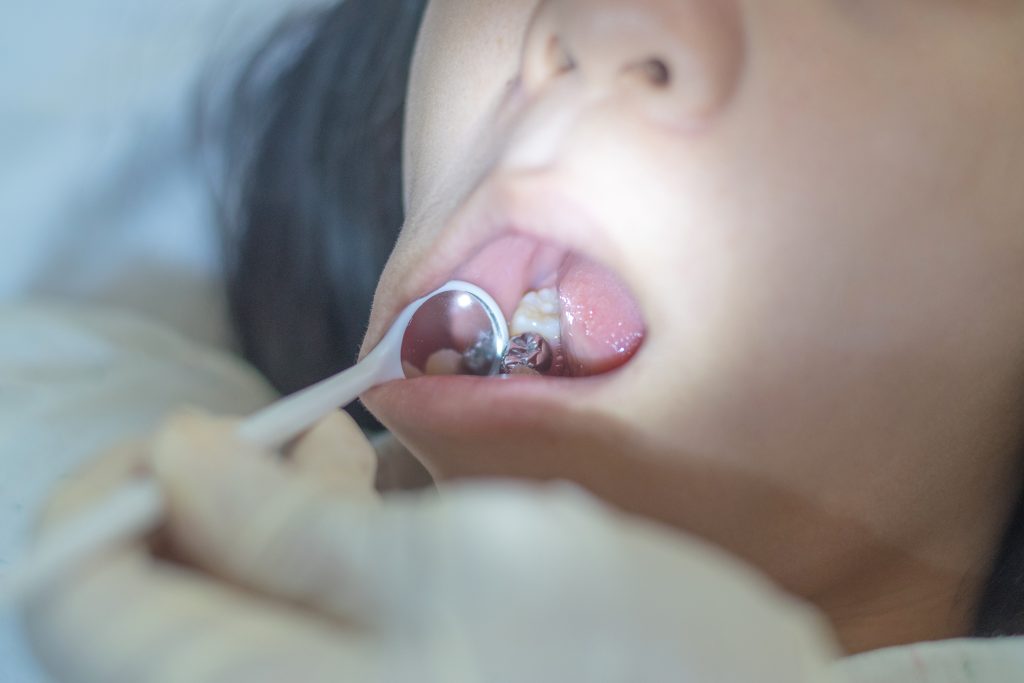
What are dental sealants?
Dental sealants are thin, plastic coatings that are applied to the teeth to protect them from cavities. They are usually applied to the back teeth (molars) where cavities are most likely to form. Sealants fill in the grooves in the teeth and create a barrier that prevents food and plaque from getting trapped in these hard-to-reach areas. Sealants play a significant role in oral health. They are most effective when used in combination with other cavity-prevention strategies, such as regular brushing and flossing, and avoiding sugary snacks and drinks. The benefits of dental sealants include a reduced risk of cavities, less need for fillings, and fewer trips to the dentist. Sealants can last for up to 10 years, but they will need to be checked and reapplied as needed. Dental sealants are usually applied in a single visit to the dentist. The application process is quick and painless, and there is no need for anesthesia. There are no reported risks or side effects associated with dental sealants.
Why are dental sealants important?
Dental sealants are important because they can help to prevent cavities. Cavities are caused by bacteria that create acids that eat away at the enamel of the teeth. Sealants create a barrier that prevents food and plaque from getting trapped in the grooves of the teeth, which helps to reduce the risk of cavities. Sealants are most effective when used in combination with other cavity-prevention strategies, such as regular brushing and flossing, and avoiding sugary snacks and drinks.
What are the benefits of dental sealants?
The benefits of dental sealants include a reduced risk of cavities, less need for fillings, and fewer trips to the dentist. Sealants can last for up to 10 years, but they will need to be checked and reapplied as needed. Dental sealants are usually applied in a single visit to the dentist. The application process is quick and painless, and there is no need for anesthesia. There are no reported risks or side effects associated with dental sealants.
How much do dental sealants cost?
Dental sealants usually cost between $30 and $60 per tooth. The application process is quick and painless, and there is no need for anesthesia.
If you want to learn more about dental sealants or more about oral health, read our blogs or visit our contact page.
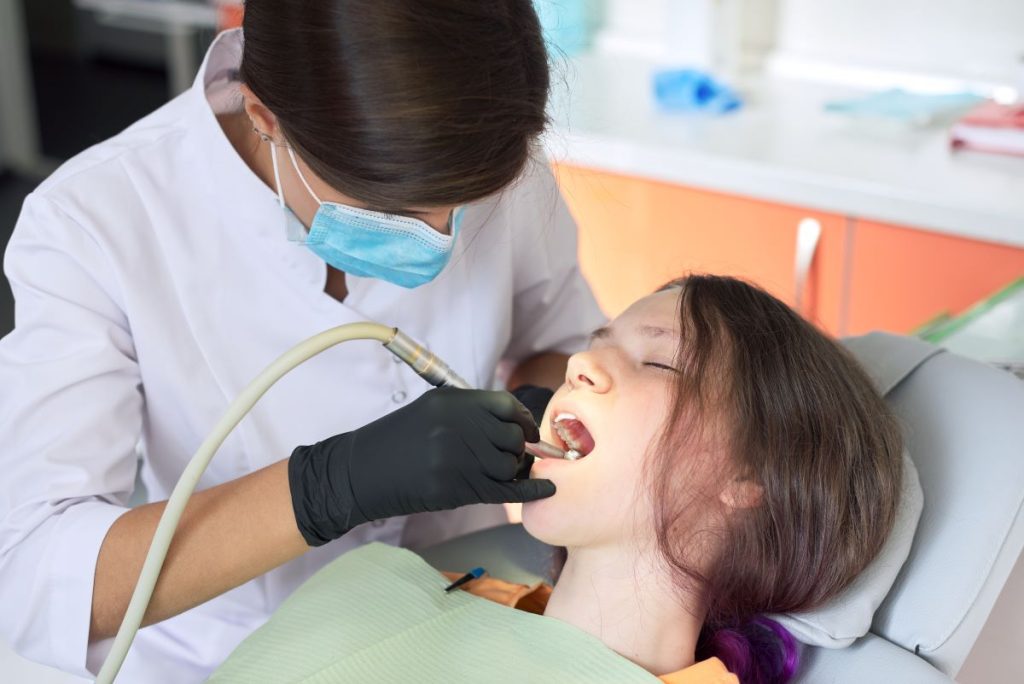
Are you someone who gets anxious at the thought of going to the dentist? You’re not alone. In fact, studies have estimated that as many as 75% of Americans experience some level of dental anxiety. And while it’s normal to feel a little nervous before a dental appointment, some people experience such severe anxiety that it prevents them from seeking the care they need.
If you fall into this category, sedation dentistry may be right for you. Sedation dentistry is a safe and effective way to help people who experience anxiety during dental procedures. With sedation dentistry, you can remain calm and relaxed during your appointment, allowing the dentist to complete the necessary work.
There are many different benefits that sedation dentistry can offer you. Keep reading to learn more about how sedation dentistry can improve your overall dental health!
The Benefits of Sedation Dentistry
One of the major benefits of sedation dentistry is that it can help you feel more relaxed during your appointment. If you have a strong fear of going to the dentist, sedation dentistry can help you overcome that fear and get the dental care you need. In addition to helping you feel more relaxed, sedation dentistry can also help you feel more comfortable during your procedure. Some people experience pain and discomfort when they go to the dentist, even if they don’t have a fear of the dentist. If you have a low threshold for pain or are just particularly sensitive to dental procedures, sedation dentistry can help you feel more comfortable. And because sedation dentistry can help you feel more comfortable, you may be less likely to tense up during your procedure, which can make the procedure itself more comfortable. Sedation dentistry can also be helpful if you have a sensitive gag reflex. If you have a strong gag reflex, you may find it difficult to keep your mouth open for an extended period of time, which can make dental procedures difficult to complete. Sedation dentistry can help relax your muscles and reduce your gag reflex, making it easier for the dentist to complete the procedure.
How to Pick the Sedation Dentist Perfect for You
If you’re interested in sedation dentistry, it’s important that you choose the right dentist for you. Not all dentists are qualified to perform sedation dentistry, so you’ll want to make sure that your dentist has the expertise necessary to provide you with the care you need. When you’re looking for a sedation dentist, one of the best places to start is by asking your regular dentist for a referral. Your regular dentist knows your medical history and can therefore make a recommendation based on your specific needs. If you don’t have a regular dentist, you can ask your family and friends for recommendations. You can also search for dentists in your area who specialize in sedation dentistry. Once you’ve compiled a list of potential dentists, you’ll want to do your own research to make sure that they’re qualified to provide you with the care you need. You can start by checking to see if the dentist is licensed in your state. You can also check to see if the dentist is certified by the American Dental Association. In addition, you’ll want to read online reviews and look at the dentist’s website to get a better sense of their experience and qualifications.
The Various Types of Sedation Dentistry
There are various types of sedation dentistry, and the type that’s right for you will depend on your specific needs. The three most common types of sedation dentistry are oral, IV, and nitrous oxide. The most common form of sedation dentistry is oral sedation. Patients take a pill before undergoing sedation. The pill helps you feel relaxed and comfortable during your procedure. IV sedation is a more intense form of sedation dentistry. With IV sedation, you receive a sedative through an IV, which helps you feel more relaxed and even sleepy during your procedure. Nitrous oxide sedation is a mild form of sedation dentistry. With nitrous oxide sedation, you breathe in a gas that helps you feel relaxed during your procedure.
The Pros and Cons of Sedation Dentistry
As with any type of medical procedure, sedation dentistry has pros and cons. You must weigh the pros and cons carefully before deciding whether or not sedation dentistry is right for you.
Some of the pros of sedation dentistry include the following:
Some of the cons of sedation dentistry include the following
If you’ve decided that sedation dentistry is right for you, there are a few things you’ll need to do to prepare for your appointment. First, you’ll need to choose a qualified dentist. Make sure that you select a dentist with sedation training to properly meet your needs. You’ll also need to get a referral from your regular dentist if you have one. If you don’t have a regular dentist, you can ask your family and friends for recommendations. You can also search for dentists in your area who specialize in sedation dentistry. Once you’ve chosen a dentist, you’ll need to schedule an appointment. Be sure to take it easy on your body after the procedure. You may be feeling groggy and tired after your appointment, so it’s important that you have someone who can drive you home or stay with you. You should also plan to take it easy for the rest of the day. Avoid any strenuous activity and be sure to get plenty of rest.
If you want to be sedated during your dental procedure to combat anxiety, visit our contact page to connect with our team of specialists.
Lifetime Dental Excellence
17 S Main St, Clawson, MI 48017
MAP & DIRECTIONS
Phone: (248) 588-6565
Fax: (248) 588-6567
| Monday | 7:00am – 7:00pm |
| Tuesday | 7:00am – 7:00pm |
| Wednesday | 7:00am – 7:00pm |
| Thursday | 7:00am – 7:00pm |
| Friday | 7:00am – 12:00pm |
| Saturday | Closed |
| Sunday | Closed |
